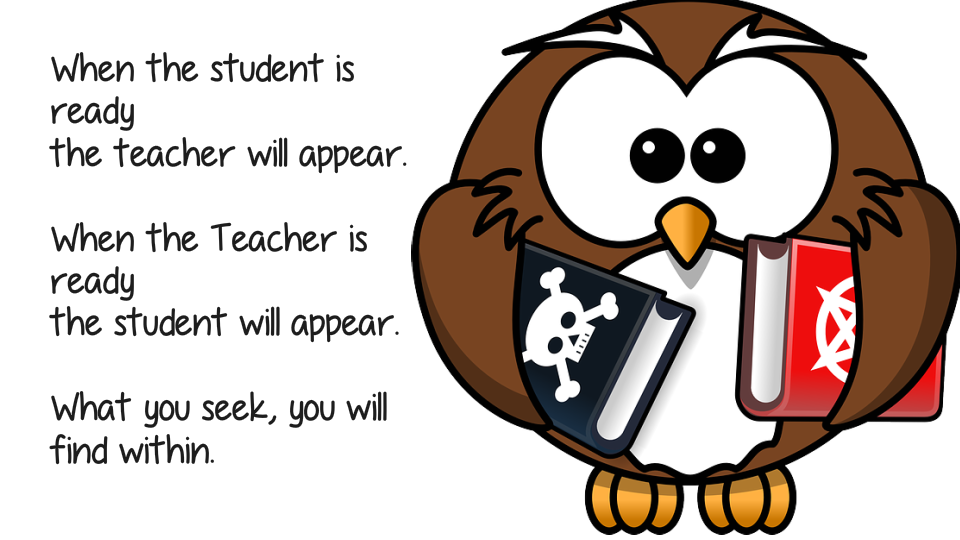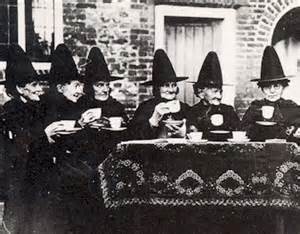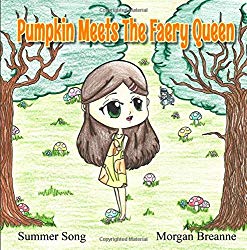What to Expect from a Teacher of the Craft
When we set out looking for a teacher to help us learn how to become a Witch or learn Tarot, Herbalism, a healing technique, or whatever you want to learn about; It may be difficult to determine what to look for in a teacher.
There are some basic things to expect from a teacher and there are some things that we should understand about Teachers. One big thing is that a teacher’s responsibility is to present the information to guide you but it is the student’s responsibility to make an effort to learn and develop the skills being taught. A teacher can not MAKE you learn, only help you learn.
When we are looking for a Teacher in the craft, we should understand that not one single person knows everything there is to know about any subject. Not even the experts know everything. The instructor should be aware of that about themselves and when something comes up that s/he doesn’t know or isn’t sure about, the teacher should be upfront with it and usually, the instructor will have resources to find out the answer and will get back to you. That is their job. Sometimes, Teachers don’t have all the answers.
Of course, a crass leader does not create a supportive learning environment. The instructor is expected to be compassionate, understanding, and kind. It is important that the teacher knows their stuff. Be aware that teachers can make mistakes too. As a student, we should always be kind and understanding to the Teacher as well. A Teacher is expected to step up and accept responsibility for their mistake and confirm the correction for the student/s.
A Teacher should never make you feel dumb. Sometimes when we make mistakes we feel a little dumb but a Teacher should not belittle a student for making mistakes and should try to make the students feel more comfortable by letting them know that mistakes are part of the learning process and are expected. It gives an opportunity for growth and learning. When learning, mistakes are a good tool to help in the learning process.
Teachers are human beings and also learning. We learn stuff as we move through life experiences. An instructor should be able to communicate what the student/s need to do in a clear and understandable way. Sometimes this can be difficult but the teacher should be trying to improve on any weak points but sometimes the students need to let the teacher know that they don’t understand the directions of the assignment and ask for clarification because a good teacher wants that kind of feedback. They may not be aware that their instructions aren’t clear, especially if the teacher is new to teaching.
A Teacher should always follow through and do what they say they are going to do and if that changes, the instructor should let the students know before the change takes effect. Sometimes, giving a good heads up isn’t possible but the students should be informed as soon as possible before they are expected to adjust to the change.
When a student is having a hard time understanding something in the course material, the teacher should do their best to try to help and clear it up with the student. Teachers should have clear instructions on when the teacher is available for questions. For example, a Teacher may have a regular full-time job, a family to care for, or any number of things in their life that will decrease their availability outside of class time. A Teacher should have set some boundaries such as how and when to contact them outside of class.
I also feel that a good teacher in the craft will hold the student responsible for their own learning. All a teacher can do is to present what they know to the students in the best and most comprehensive way they can. The student is responsible for doing the assignments and practicing or studying the contents of the class. The Teacher is expected to hold the student accountable in the way that if the student doesn’t apply him/herself to the studies being presented, the Teacher should inquire what could be the problem.
If a student does not hold up to their end of the bargain such as practice and at least try to improve their skills, then the Teacher should let the student know that their performance needs work and give some tips on how the student may work on making improvements. Students need feedback from the Teacher in order to build or develop confidence in their new skills.
Students need to know what they are doing wrong and what they are doing right. The teacher should not make a big deal out of what the student is doing wrong. The teacher should be encouraging instead of demeaning. There should be no shame in making mistakes.
A Teacher should be fair. As adults, we know life isn’t fair but we also know that fair doesn’t mean equal. Fair simply means fair.
When we are discussing Teachers of the Craft and Craft related skills, we have to be clear on the tools the teacher uses to teach. There are a few different learning styles and the Teacher’s method of teaching should work for your learning style. If you find one Teacher who doesn’t resonate with you, it could be the teaching method or style or a simple personality conflict. Either of those may detract from your learning experience. That doesn’t mean the teacher is a bad teacher just not the right one for your learning style.
If that is the case then, by all means, seek another teacher. In the craft there are many different traditions to learn about, from Wicca to Traditional Witchcraft, to Santaria, and so on. Every tradition has its own ways of doing things and the content changes between traditions. It doesn’t mean a teacher is necessarily wrong but may be just a different path. If you don’t agree with the content of that Teacher’s class then try a different path until you find what you are looking for.
Sometimes, as a seeker, we don’t always know exactly what it is that we are seeking and that means we have to sift through all different types of content.
As a student, we should always take everything with a grain of salt. Take it, consider it, explore then come back.
One of the hardest parts of my lessons was to make me question what I believe. I had to examine my beliefs and decide if what I believe is compatible with what I am being taught. That was a year or two into my lessons. My first teacher set the bar for me on that. She told me that everything she tells me should not be assumed to be solid fact because what we may believe to be fact may change with new information.
It is true to the best of her knowledge and beliefs but she could be wrong about something and it is up to me to decide what is true and what doesn’t work for me. When I am teaching someone else, I should make that clear to my student as well. That is why I write in the context of opinion based on what I think, feel, and believe.
I hope this is helpful to those seeking a teacher and Teachers alike.
May your journey be brimming with the wonders of delight.
![]()








Hello! I am trying to find what the Craft is for me and could use some guidance – someone to ask questions of and who knows what resources (books and locations) to use. How do I find a teacher? I know some pagans in my area, but none that I feel comfortable taking guidance from. Thank you for your time!
It depends on what flavor of the craft you are looking for. There are some online schools and one that I know of that will be launching by the end of the month for Wicca. Some to look at are Temple of Witchcraft, Sacred Mist, Witchschool, and coming soon is WitchTraining. Here is a free wicca online school to check out the magical circle school. As far as finding a teacher for in person, Today I find that if you don’t know someone there are places online to find a group like meetup.com. Today, I know personally only one teacher who offers classes in person. Look in Groups on social sites such as Google+ and Facebook. You can check out forums online such as Celtic Connection and ask there. Some people like witchvox.com and some don’t but you can check that out too. Most of the Witches I know personally are Wiccan and very few non-Wiccan Witches. There are some books but you will have surf through the myriad of books. There are different types of Witchcraft traditions from hereditary, Green Witch, Hedge Witch, Traditional Witchcraft, Santeria, Hoodoo/Voodoun, and much more out there. I recommend searching the web and looking through books. I started out in Wicca and found it to be a good transitional tradition from Some religions such as Christianity. I recommend exploring many different traditions of Witchcraft depending on what your interests are, I am sure you will find a tradition that speaks to you if this is calling to you. On our Books for Beginner page, it gives some resources for books and authors to look up to read, however, these are mostly Wiccan since that is where I began. Some other Witches you may want to check out are Laurie Cabot and Christopher Penczak.